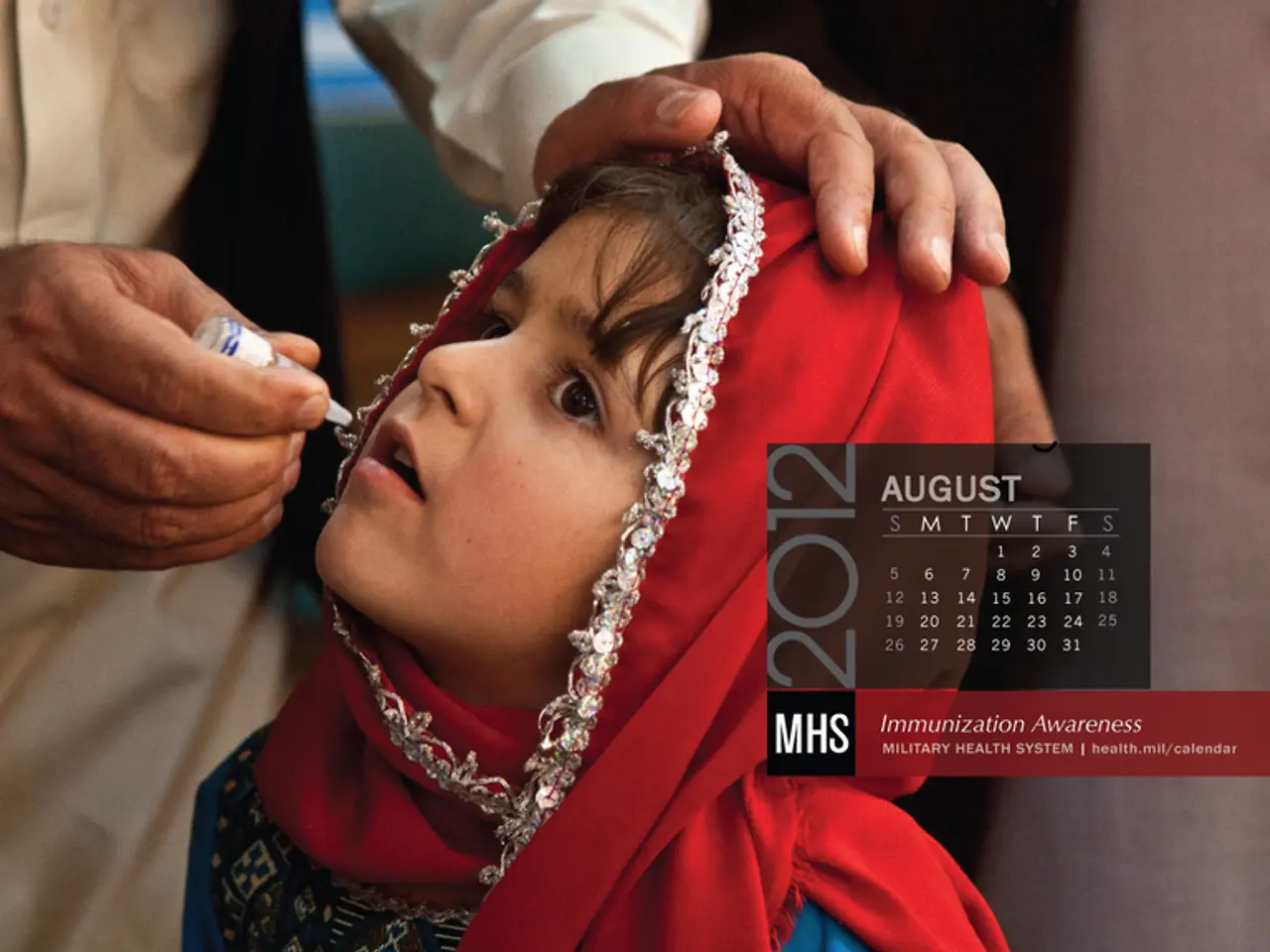Institutional mistrust concerning religious beliefs in Kazakhstan linked to vaccine rejection study findings
In Kazakhstan, a growing concern has emerged regarding vaccine hesitancy, with the number of refusals increasing sixfold over the past decade. Despite this, a recent study by the World Health Organization (WHO) suggests that religious reasons play a relatively weak role in vaccine refusal within the country.
According to Batyrzhan Berdenuly, a secretary of the Council of Scholars at the Spiritual Administration of Muslims of Kazakhstan, traditional Islamic communities generally support vaccination. However, non-traditional or minority religious groups tend to be more sceptical. This scepticism is rooted in various beliefs, including reliance on Divine will, moral objections, concerns about ingredients believed to defile the body, and the belief that vaccination is part of a conspiracy targeting specific religious groups.
However, contrary to popular belief, religious reasons were found to play a minor role in vaccine refusal in Kazakhstan. The preliminary results of the WHO study indicate that public distrust in the healthcare system plays a much larger role. This distrust stems from fears of the negative consequences of vaccination, gaps in medical literacy, and a feeling that healthcare system workers do not care about children and do not take an individual approach to providing care.
Two common factors were identified among parents who refuse to vaccinate their children: personal or secondhand negative experiences with vaccination and exposure to emotionally charged and persuasive misinformation. These findings align with global trends, where concerns about vaccine safety, lack of trust in institutions, misinformation, and cultural and social factors significantly influence vaccination decisions.
Anatoly Izmerov, archpriest and chairman of the Society of Orthodox Doctors of Kazakhstan, declared that Christianity is not opposed to vaccination. In fact, he stated that vaccination is a kind of medicine in Christianity. Sahil Warsi, a consultant at the WHO Regional Office for Europe and lead scientist of the study, further emphasised that confidence in vaccines is more closely tied to healthcare workers and trust in the medical system.
The study, which comprised 27 focus groups with 227 participants across four locations in Kazakhstan, is set to present its final results within the next two months. The findings will provide a more comprehensive understanding of the factors influencing vaccine hesitancy in Kazakhstan, which could help in developing strategies to improve vaccine coverage and acceptance.
As Kazakhstan grapples with measles outbreaks, it is crucial to address the challenges associated with vaccine hesitancy. By understanding the underlying factors, healthcare professionals, community leaders, and policymakers can work together to build trust, dispel misinformation, and promote the importance of vaccination for the protection of public health.
- Science and health-and-wellness are closely tied in Kazakhstan's ongoing efforts to combat vaccine hesitancy, as the preliminary results of a WHO study suggest that public distrust in the healthcare system plays a more significant role in vaccine refusal compared to religious reasons.
- In light of growing concerns about vaccine hesitancy and measles outbreaks, it is essential for healthcare professionals, community leaders, and policymakers to emphasize the importance of vaccination for public health, not just from a scientific perspective but also by building trust and dispelling misinformation.




